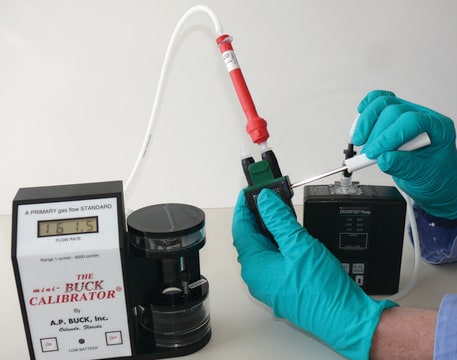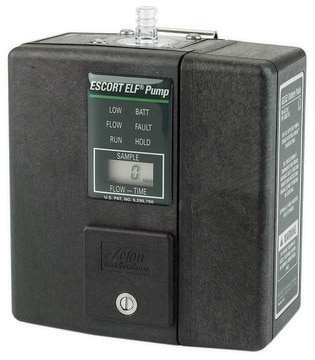50386-U
Ascentis® Express 90Å C8 (5 μm) HPLC Columns
L × I.D. 3 cm × 4.6 mm, HPLC Column
About This Item
Empfohlene Produkte
product name
Ascentis® Express C8, 5 μm HPLC Column, 5 μm particle size, L × I.D. 3 cm × 4.6 mm
Materialien
stainless steel column
Qualitätsniveau
Agentur
suitable for USP L7
Produktlinie
Ascentis®
Leistungsmerkmale
endcapped
Hersteller/Markenname
Ascentis®
Verpackung
1 ea of
Parameter
60 °C temp. range
600 bar max. pressure (9000 psi)
Methode(n)
HPLC: suitable
LC/MS: suitable
L × ID
3 cm × 4.6 mm
Oberflächenbereich
90 m2/g
Verunreinigungen
<5 ppm metals
Matrix
Fused-Core particle platform
superficially porous particle
Aktive Matrixgruppe
C8 (octyl) phase
Partikelgröße
5 μm
Porengröße
90 Å pore size
Betriebs-pH-Wert
2-9
Anwendung(en)
food and beverages
Trenntechnik
reversed phase
Suchen Sie nach ähnlichen Produkten? Aufrufen Leitfaden zum Produktvergleich
Allgemeine Beschreibung
Rechtliche Hinweise
Erforderlich, aber nicht bereitgestellt
Ähnliches Produkt
Lagerklassenschlüssel
11 - Combustible Solids
WGK
WGK 3
Flammpunkt (°F)
Not applicable
Flammpunkt (°C)
Not applicable
Choose from one of the most recent versions:
Analysenzertifikate (COA)
Don't see the Right Version?
If you require a particular version, you can look up a specific certificate by the Lot or Batch number.
Besitzen Sie dieses Produkt bereits?
In der Dokumentenbibliothek finden Sie die Dokumentation zu den Produkten, die Sie kürzlich erworben haben.
Artikel
When a C18 doesn′t give the desired separation, or your sample contains compounds that are known to be difficult to retain or resolve on a C18, consider changing to an Ascentis® Express C8 column.
Unser Team von Wissenschaftlern verfügt über Erfahrung in allen Forschungsbereichen einschließlich Life Science, Materialwissenschaften, chemischer Synthese, Chromatographie, Analytik und vielen mehr..
Setzen Sie sich mit dem technischen Dienst in Verbindung.







